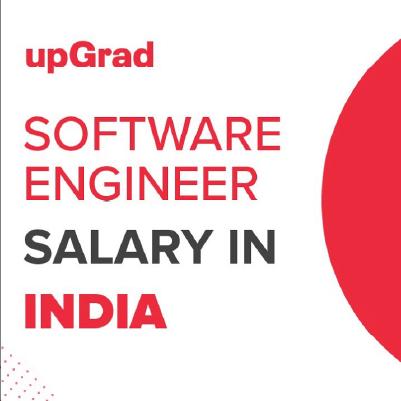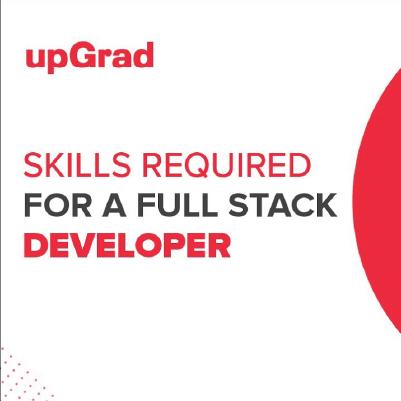For working professionals
For fresh graduates
- Study abroad
More
Software Engineering Course
A Software Engineering course builds skills in programming, system design, and software development. Learn coding, problem-solving, and project management to excel in IT, product development, and tech roles.
Updated Generative AI Curriculum
Industry Relevant Projects and Case Studies
Latest Programming Tools and Languages
-c2f52168fb134577af478c6b32e65441.webp&w=3840&q=75)
Interview Preparation
Career Support
66% Avg. Salary Hike
Our Top University Partners





Latest Software Engineering Industry Trend
39%
of companies plan to expand their tech team
104%
Increase in demand for JavaScript & Node.js
80%
of people prefer to learn coding online
70%
of businesses to increase investment in software
Projects for Software Engineering Courses
5+
Projects
Software Engineering Courses Instructors
3
Instructors
Software Engineering Videos
Success Stories for Software Engineering Courses
How can upGrad support you?
Access the various career developement support services offered by upGrad to help you achieve your professional goals
You can write to us via studentsupport@upgrad.com or for urgent queries use the " Talk to Us" option on the learning platform


What Are the Top Specializations in Software Engineering Courses?
What Skills Will You Learn in Software Engineering Courses?
What Top Tools You Will Learn in Course on Software Engineering?
Eligibility and Requirements for Software Engineering Courses
Who Can Enroll in Software Development Courses?
How Do Software Engineering Courses Certifications Add Value to Your Resume?
Free vs Paid Software Engineering Courses
Are Software Engineering Courses Worth It?
How is upGrad’s Software Engineering Courses Different from Others?
Frequently Asked Questions about Software Engineering Course
1. What is the best course for software engineers?
The best way to become a software engineer is usually through a degree like B.Tech or B.E. in Computer Science. However, if you want a faster and more job-oriented path, you can explore software engineering courses such as the AI-Driven Full-Stack Development Bootcamp by upGrad or the courses and various other top software engineer classes.
2. Which course is better for software engineering?
It depends on your career goals. If you want a strong foundation, a B.Tech in Computer Science is a great option. But for faster, industry-focused learning, upGrad offers some of the best software engineering courses that you can explore. Industry-focused programs such as the Professional Certificate Program in Cloud Computing and DevOps or the Executive PG Certification in AI-Powered Full Stack Development are excellent choices. These can also serve as a practical course on software engineering for learners aiming to enter roles in AI, machine learning, and data engineering.
3. Which software course provides the highest salary?
Roles in AI, machine learning, and data engineering bring top salaries. To enter these fields, students can pursue software development certifications, software engineer certifications, or advanced software engineer programs via upGrad.
4. Which software course is high demand?
High-demand software engineering courses today focus on AI, machine learning, blockchain, cloud computing, and cybersecurity. Advanced software development courses offered by top universities also cover DevOps, backend development, and full-stack skills. These latest software engineer classes are designed for professionals aiming to upskill and move into leadership roles in the tech industry.
5. What skills are preferred in a software engineering course?
Companies that pay well always lookout for additional skills that the software engineer has. These skills include the practical knowledge of:
- Python
- Java
- Software Development
- Web Development
- Database Engineering
- Linux
- C++
- Scrum
- HTML
- Jenkins
6. Which are the top industries suitable for Software Engineer professionals?
Software engineers are in high demand across industries like IT, finance, healthcare, e-commerce, and telecommunications. Professionals with expertise from software engineering courses can work in cybersecurity, AI development, and cloud computing. Completing software courses enhances job prospects in top tech-driven industries, ultimately leading to a successful career in software development.
7. What is the difference between a software engineering diploma vs degree online?
Learners often compare a software engineering diploma vs degree online when choosing a career path. Diplomas typically focus on practical, industry-aligned skills and shorter duration programs, while online degrees offer a deeper theoretical foundation, extensive projects, and university-recognized certification. upGrad’s programs provide both hands-on learning and career support, helping students gain the skills required for software development roles.
8. Are there short-term online software engineering bootcamps I can enroll in to upskill quickly?
Yes! upGrad offers short-term online software engineering bootcamps, like the AI-Driven Full-Stack Development Bootcamp, designed to provide hands-on experience, real-world projects, and industry-recognized certifications within a condensed timeframe. These programs are perfect for learners aiming to quickly gain job-ready skills in software development and AI-powered technologies.
9. Why should I consider a career in software engineering ?
Considering a career in software engineering and architecture is wise for anyone who wants to be involved in shaping the future. These fields offer the chance to work on cutting-edge projects and solve complex problems. Software and tech courses, particularly those focusing on software development and software engineering courses, provide you with the skills to innovate and make a significant impact in various industries.
10. What are the key benefits of taking an software engineering course?
Key benefits of taking a course on software engineering include gaining in-demand skills in areas like software programming, software design, and software development. These courses, ranging from basic software courses to advanced digital marketing course offerings, provide comprehensive knowledge and hands-on experience. They prepare you for a range of roles in the tech industry and open doors to numerous career opportunities.
11. Can I become a software engineer after BCA?
Yes, you can become a software engineer after completing a BCA. The BCA provides a solid foundation in computer applications, and further specialising with a software engineering course or gaining practical experience through internships or projects can lead to a successful career in software engineering.
12. Which is better, CSE or SE?
Both fields have their strengths. CSE (Computer Science Engineering) covers a broad range of computing concepts, including hardware, algorithms, and networks, while SE (Software Engineering) focuses more on designing, building, and maintaining applications. For students interested in coding, app development, and project management, enrolling in a software engineering course is often the better choice, as it provides practical skills directly aligned with software industry needs.
13. What makes upGrad’s programs among the best software engineering online courses in India?
upGrad’s software engineering programs stand out among the best software engineering online courses in India due to their industry-driven curriculum, hands-on projects, mentorship, and career support. Learners gain both technical expertise and practical exposure, ensuring they’re job-ready for India’s fast-evolving tech landscape.
14. Is taking a software development training with placement worth it?
Yes. Such programs provide structured learning, mentorship, and project experience while offering placement support, which improves job readiness. Learners gain industry-relevant skills and practical exposure, making it a strategic investment for launching a career in high-demand IT roles.
15. Why choose upGrad for the best online courses for coding beginners?
upGrad offers the best online courses for coding beginners with industry-relevant curriculum, hands-on projects, and expert mentorship. Designed for newcomers, these courses provide a strong foundation in programming, software development, and essential coding skills. With flexible online learning, career support, and recognized certification, upGrad ensures beginners gain practical knowledge and confidence to start their journey in software engineering.
16. What programming languages will be taught in software engineering courses?
Programming languages taught in a tech course typically include widely used languages such as Java, Python, C++, and SQL. These languages are chosen for their applicability in various areas of software development, from web and mobile app development to data analysis and machine learning. The choice of languages may vary depending on the course on software engineering and its specialization.
17. What topics are covered in the syllabus of an software engineering course?
Software engineering courses cover topics like programming, software development methodologies, AI, cybersecurity, cloud computing, and mobile app development. These software courses, including software engineering degrees and certifications, provide both theoretical and practical skills. By completing software engineer classes or software development courses, students are prepared for tech roles such as software developers and engineers.
18. What factors determine the fees for software engineering training programs?
Factors that determine the course fees for software engineer training programs include the type of institution (public or private), the length and depth of the course, the level of certification or degree offered, and any additional resources provided (such as access to specialised software or lab facilities). More specialised courses, like those in software engineering and architecture or MSc software engineering, may have higher fees due to their advanced nature and the expertise of the faculty involved.
19. Are there any additional costs in software engineering courses apart from the course fees?
Additional costs in software courses may include expenses for textbooks, software licenses, and possibly travel expenses for in-person sessions or exams. It's important to look at software development course details carefully to understand all additional costs in detail.
20. Can software and tech course fees be paid in instalments?
Payment in instalments is a common option offered by many institutions for software and tech course fees. This can make it easier for students to manage their finances while pursuing their educational goals.
21. Does upGrad offer affordable online software developer training?
Yes, upGrad provides affordable online software developer training designed for aspiring developers. These programs cover in-demand skills such as coding, system design, and full-stack development. With flexible payment options, EMI plans, and industry-recognized certificates, upGrad ensures high-quality, cost-effective learning to help you kickstart your software engineering career.
22. How to become a software engineer?
You can start by enrolling in a course on software engineering or software engineer classes to build coding, system design, and project skills. Then pursue a Bachelor of Software Engineering or computer software engineering degree, and enhance your profile with software engineer certifications.
23. How can pursuing top online masters for computer science in India enhance my software engineering career?
Enrolling in top online masters for computer science in India provides advanced technical knowledge, hands-on projects, and exposure to emerging fields like AI, cloud computing, and cybersecurity. It helps software engineers qualify for senior roles, leadership positions, and specialized career paths while offering the flexibility to learn alongside professional commitments.
24. How is AI impacting software engineering jobs?
AI is transforming software engineering roles by automating coding, testing, and debugging tasks. Software engineers now work alongside AI tools to accelerate development, enhance code quality, and integrate AI-driven features into applications. Learning AI alongside software engineering can give you a competitive edge and open opportunities in AI-assisted development, automation, and innovative software solutions.
25. What is the career scope after online software engineering?
The career scope after online software engineering is vast and growing rapidly. Learners can pursue roles such as full-stack developers, cloud architects, AI engineers, software testers, and system designers. With the digital transformation across industries, professionals with online software engineering skills are in high demand, enjoying strong job prospects, competitive salaries, and opportunities to work on cutting-edge technologies.
26. Which IT job is in demand?
Full-stack development, DevOps, and cybersecurity are among the most in-demand IT jobs. Taking computer software development courses or software training builds the right skill set.
27. Does upGrad offer software programming courses with placement?
upGrad’s software programming courses are designed to provide advanced learning, hands-on projects, and career support. While upGrad does not guarantee placement, students receive comprehensive placement assistance, including mentorship, interview preparation, resume guidance, and networking opportunities with industry partners to maximize their chances of securing a software engineering role.
28. What makes a programming course ideal for beginners in India?
An ideal beginner programming course teaches coding fundamentals, problem-solving, and project-based learning. The best programming courses for beginners in India allow learners to practice with real-world scenarios, build portfolios, and gain mentorship support. Such courses lay the groundwork for a successful career in software development, software engineering, and related tech fields. Platforms such as upGrad also offer beginner-friendly programs with structured guidance and mentorship, preparing learners for a strong start in software engineering careers.
29. How do the best software development diploma programs in India benefit learners?
The best software development diploma programs in India provide a practical, industry-focused approach to mastering programming, full-stack development, and emerging technologies. Programs offered by platforms like upGrad combine hands-on projects with career support, helping learners enhance employability, build real-world skills, and prepare for rewarding opportunities in the software development sector.
30. How can online masters programs in software engineering enhance career growth?
Online master's programs in software engineering provide advanced skills in software architecture, AI, cloud computing, and full-stack development. They equip learners to take on senior technical roles, leadership positions, and specialized career paths, all while offering flexible learning options for working professionals.
31. Who can apply for online bachelors in software engineering in India?
Students who have completed 10+2 with Mathematics, Physics, or Computer Science are eligible to apply. These programs provide a structured pathway to build programming, system design, and analytical skills through flexible online modules.
32. How to get a job in IT company after 12th?
To start a career in an IT company after 12th, you can pursue a B.Tech in Computer Science, Bachelor of Computer Applications (BCA), opt for a diploma in software engineering, or enroll in a software engineering course from various platforms like upGrad.
33. What is the salary of a 12-year software engineer?
With 12 years of experience, a software engineer’s salary in India can range from ₹15 lakhs to ₹50 lakhs annually, while professionals in top product-based firms or leadership roles may earn ₹70 - 80 lakhs or more, depending on company, role, and location.
34. Is JEE compulsory for software engineering?
No, JEE is not mandatory everywhere. Many colleges and software engineering courses offer direct admission into software engineering programs.
admission
35. What are the top programming languages to learn in 2025?
The top programming languages to learn in 2025 include Python, JavaScript, Java, C#, Go, and Rust, each offering unique benefits for different career paths. Python is ideal for data science and AI, JavaScript for web development, and Go or Rust for system-level programming. Learning these languages enhances employability and equips software engineers to work on modern, in-demand projects.
upGrad Learner Support
Talk to our experts. We are available 7 days a week, 10 AM to 7 PM
Indian Nationals
Foreign Nationals
Disclaimer
1.upGrad does not grant credit; credits are granted, accepted, or transferred at the sole discretion of the relevant educational institution offering the diploma or degree. We advise you to enquire further regarding the suitability of this program for your academic, professional requirements and job prospects before .



































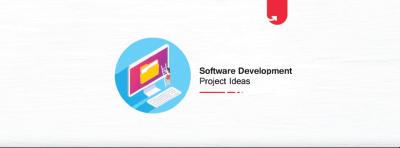

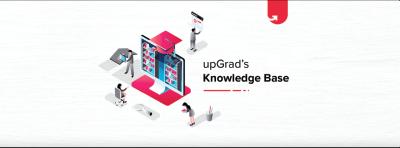


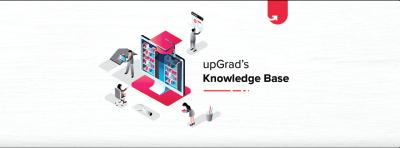

_upGrad Dweb-5e9cf18bbadd4ab1bd5c9ae20e34e9a6.svg)
